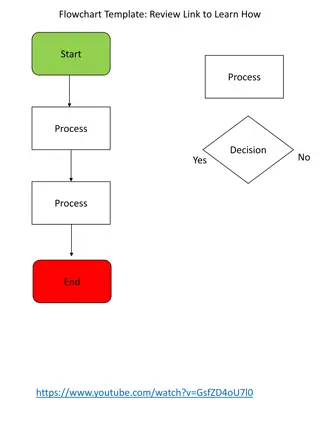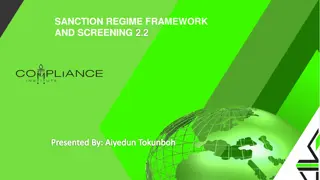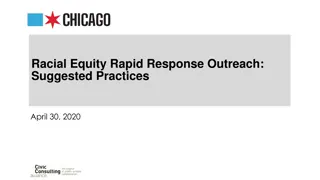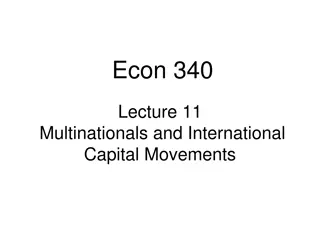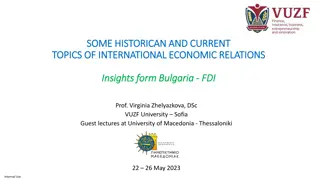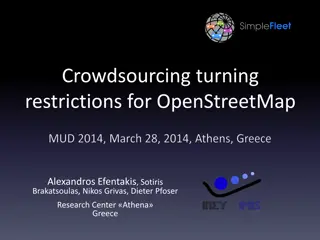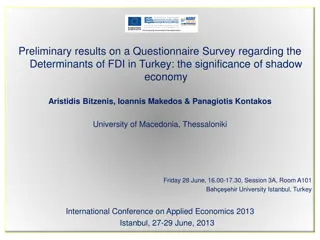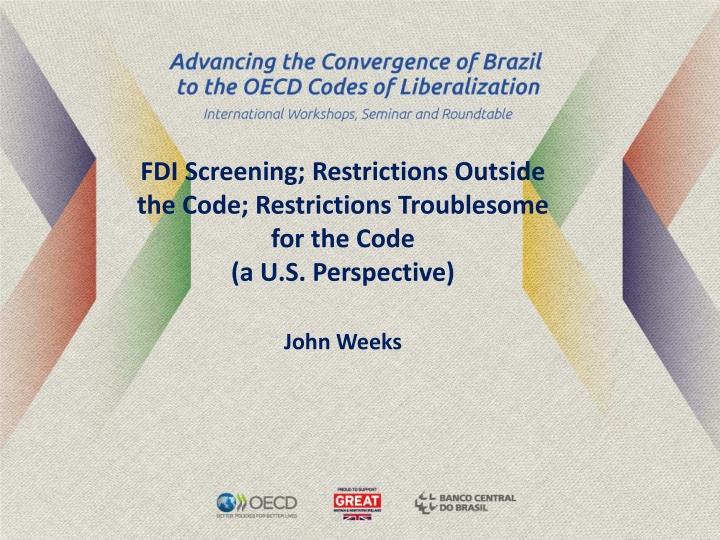
FDI Restrictions and Screening
This content discusses the importance of Foreign Direct Investment (FDI) and the challenges posed by various restrictions and screenings. It covers the implications of restrictions on FDI, the types of restrictions encountered, the screening processes involved, and the impact of measures not covered by restrictions. Additionally, it explores the difficulties faced in adhering to the FDI Code and the evolution of regulatory frameworks over time.
Download Presentation

Please find below an Image/Link to download the presentation.
The content on the website is provided AS IS for your information and personal use only. It may not be sold, licensed, or shared on other websites without obtaining consent from the author. If you encounter any issues during the download, it is possible that the publisher has removed the file from their server.
You are allowed to download the files provided on this website for personal or commercial use, subject to the condition that they are used lawfully. All files are the property of their respective owners.
The content on the website is provided AS IS for your information and personal use only. It may not be sold, licensed, or shared on other websites without obtaining consent from the author.
E N D
Presentation Transcript
FDI Screening; Restrictions Outside the Code; Restrictions Troublesome for the Code (a U.S. Perspective) John Weeks
FDI and the Code FDI and the Code FDI is One of the Most Important Obligations of the Code, if not the Most Important. Maybe Second Only to Being Able to Buy and Sell Foreign Exchange. The Ability to Engage in Direct Investment Globally is Critical to an Efficient Allocation of Global Resources. Resources Must be Able to Move to Where They are Most Needed and Earn the Highest Return. Most Adhering Countries Have Open Direct Investment Regimes. Some Exceptions Exist for National Security Concerns (atomic energy, power grids, critical infrastructure).
FDI Restrictions That are Less Forgiving FDI Restrictions That are Less Forgiving Restrictions That Have as a Purpose Promoting National Champions; Preventing Competition with Domestic Firms Restrictions That Require Technology Transfers or the Sharing of Intellectual Property as a Pre-Condition of FDI Restrictions That Require Domestic Partners, Joint Ventures, or Prevent Majority Ownership Allowing Foreign Firms to Choose Their Organizational Structure Matters
Screening FDI Screening FDI Not Desirable as a General Rule Some do: Canada (if it provides a net economic benefit), Australia (if it is in the national interest) United States has CFIUS (national security concerns) If Political Necessity Requires a Screening Process, Then Hopefully it is Narrow in Scope Some Restrictions Would be Disqualifying for Me
Restrictions and Measures Not Covered by Restrictions and Measures Not Covered by Reservations Reservations The Code Operates as a Positive List Covering a Set of List A and a Set of List B Obligations. Focuses on Transactions Based on Residency. Any Restriction That Would Adversely Affect Transactions Between Residents Only Would Fall Outside the Code; Would Not be Subject to Code Oversight and Transparency. Any Restriction That Would Affect Only Non-Residents from Non- Adhering Countries are not Covered by the Code. Most MacroPrudential Measures are not Covered by the Code, as Most MPMs Focus on the Domestic Market and Regulation of Domestic Transactions Only.
Restrictions That Pose Difficulties for Code Restrictions That Pose Difficulties for Code Adherence Adherence The Code has Functioned Extremely Well. Virtually No Issues Were Raised by Adherents for Years...Until the Financial Crisis of 2008/09. And Even Then Only in a Limited Sense, and Only by a Small Segment of Adherents Key Area of Concern Has Been Use of CFMs as So-Called MPMs. Should CFMs Used With Intent of MPMs be Excluded From the Code? Should Different Reserve Requirements on Different Currency Deposits be Excluded from the Code? Does Taking a Reservation Come With a Stigma?
Conclusion Conclusion FDI Should be Unfettered; Free of Restrictions. FDI is a Main Obligation of the Code. Protectionism is Disqualifying. The Code is Concerned Only With Transactions on List A and List B Between Residents of One or More Adhering Countries; Other Transactions are not Covered and Restrictions Elsewhere Pose No Problem for the Code. There Have Been Very Few Issues or Concerns Raised With the Code Over the Last 30 Years. But Increased Use of CFMs to Address Capital Inflows in ther Name of MPMs Has Raised Some Important Adherence Issues for at Least Some with Respect to the Code. They Tend to Want More Flexibility.

